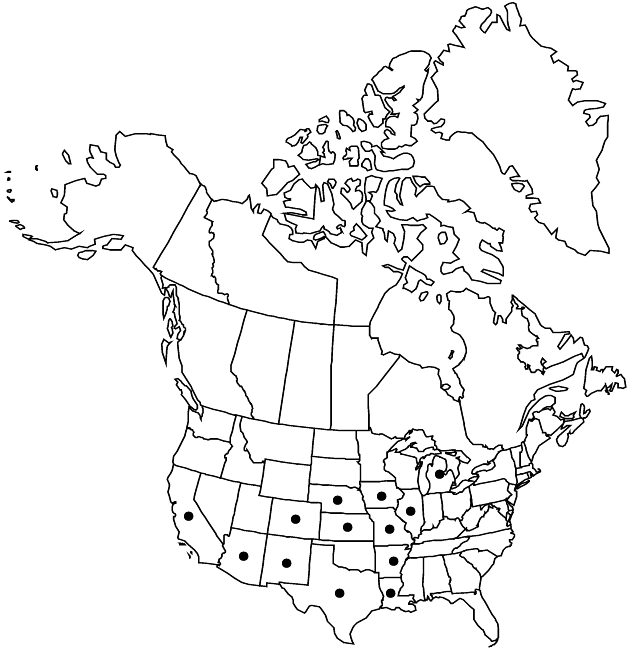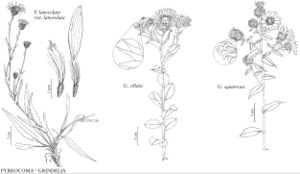Difference between revisions of "Grindelia ciliata"
Syst. Veg. 3: 575. 1826.
FNA>Volume Importer |
imported>Volume Importer |
||
| (2 intermediate revisions by 2 users not shown) | |||
| Line 6: | Line 6: | ||
|place=3: 575. 1826 | |place=3: 575. 1826 | ||
|year=1826 | |year=1826 | ||
| + | }} | ||
| + | |special_status={{Treatment/ID/Special_status | ||
| + | |code=F | ||
| + | |label=Illustrated | ||
| + | }}{{Treatment/ID/Special_status | ||
| + | |code=E | ||
| + | |label=Endemic | ||
}} | }} | ||
|basionyms={{Treatment/ID/Basionym | |basionyms={{Treatment/ID/Basionym | ||
| Line 62: | Line 69: | ||
|publication title=Syst. Veg. | |publication title=Syst. Veg. | ||
|publication year=1826 | |publication year=1826 | ||
| − | |special status= | + | |special status=Illustrated;Endemic |
| − | |source xml=https:// | + | |source xml=https://bitbucket.org/aafc-mbb/fna-data-curation/src/2e0870ddd59836b60bcf96646a41e87ea5a5943a/coarse_grained_fna_xml/V19-20-21/V20_981.xml |
|tribe=Asteraceae tribe Astereae | |tribe=Asteraceae tribe Astereae | ||
|genus=Grindelia | |genus=Grindelia | ||
Latest revision as of 20:07, 5 November 2020
Annuals or biennials, 20–150+ cm. Stems erect, stramineous, glabrous (branched distally). Cauline leaf blades oblong to obovate, 30–50(–80) mm, lengths mostly 2–4 times widths, bases ± clasping, margins dentate (teeth apiculate to setose), apices rounded, faces glabrous, obscurely, if at all, gland-dotted. Heads borne singly or in open to crowded, corymbiform arrays. Involucres broadly urceolate, 10–15 × 15–25 mm. Phyllaries in 3–5 series, spreading to appressed, subulate to linear-lanceolate, apices recurved to straight, attenuate, slightly to moderately resinous. Ray florets 25–45; laminae 10–15+ mm. Cypselae whitish to grayish, 2–4 mm, apices smooth or minutely coronate, faces smooth or striate; pappi (persistent or tardily falling) of 25–40 barbellate bristles 3–7+ mm subtending 8–15+ barbellate, setiform awns or subulate scales 7–10 mm (the longer surpassing disc corollas). 2n = 12.
Phenology: Flowering Aug–Oct.
Habitat: Disturbed sites, prairies, railroads, roadsides
Elevation: 100–1500 m
Distribution

Ariz., Ark., Calif., Colo., Ill., Iowa, Kans., La., Mich., Mo., Nebr., N.Mex., Okla., Tex.
Discussion
Selected References
None.
